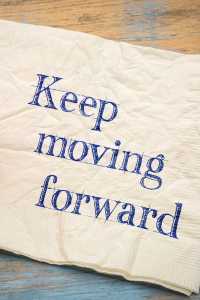Ever had one of those days where everything feels heavy, and you can’t quite figure out why? You’re not alone. We’ve all been there. It’s that feeling of being stuck in slow motion, weighed down by emotions we can’t shake. But don’t worry—because when you’re feeling down, everyone suddenly becomes an expert on how to fix you, whether you asked for advice or not. Remember that iconic moment in Moonstruck where Cher slaps Nicolas Cage and says, “Snap out of it!”? If only it were that easy, right?
Check out our You Tube Channel and see!

Snap Out of It? Dealing with the Blues
We all experience emotional lows from time to time. That sadness, melancholy, or unexplained emotional heaviness can catch us off guard. For some, the blues can be linked to loneliness, stress, disappointment, grief, or even simple fatigue. But regardless of the source, the blues tend to overstay their welcome. And while you may want them gone, some of your friends and family might not know how to help—or worse, they might not want to deal with it at all. That’s where you often hear those two unhelpful responses: “Snap out of it!” or “Put on a happy face!”
The problem is that these reactions aren’t grounded in reality. We can’t just “get over” emotional lows, grief, or disappointment like flipping a switch. Emotions are complex, and sadness, anxiety, or even anger often serve a deeper purpose. These feelings are natural responses to life’s challenges—whether it’s a personal loss, a stressful situation, or simply one of those inexplicable funks we find ourselves in.
Sadness isn’t just an emotion to be avoided—it’s a tool that helps us process difficult experiences and grow. When we push our emotions away or bury them under a fake smile, we actually slow down our healing. It’s like trying to clean a wound by covering it up without ever treating it. Instead of helping us move forward, ignoring our feelings makes them fester, holding us back from the growth and understanding that comes from working through tough times.
And let’s be real—nobody wants to stay stuck in their blues longer than necessary. But working through emotions takes time. It’s part of the process of healing, gaining insight, and making sense of what we’re feeling. The key is not to ignore your sadness but to allow yourself the time to reflect, heal, and grow.

Instead of snapping out of it or plastering on a fake smile, the goal should be to pivot—to move forward with our emotions, rather than away from them. Moving forward acknowledges the pain or discomfort we’re feeling, but it focuses on living life despite those challenges. We don’t need to figure out the exact root of our sadness in order to heal, but we do need to integrate our losses, disappointments, and grief into our life story. After all, we are the sum of our experiences.
Here’s the good news: sadness, grief, and disappointment don’t have the power to stop us from being resilient and growing. They might slow us down for a bit, but they can’t take away our strength or capacity to heal.
So, what can help when you’re feeling stuck in a low place? Let’s talk practical steps:

And finally—laughter! It won’t solve everything, but it can be a great way to hit pause on the heaviness of life. If you’re feeling down, go ahead and watch that funny movie or binge your favorite comedian. Sometimes, a little humor can provide a fresh perspective, even if just for a moment. You’d be surprised how much lighter you feel after a good laugh.
When we’re going through tough times, the goal isn’t to “snap out of it” or “just be happy.” The goal is to move forward, grow, and find comfort in knowing that our tough times don’t define us, but they can shape us into stronger, more compassionate people. So, be patient with yourself—healing takes time, and you’re not alone in the process.